Breakthrough opportunity
General Secretary To Lam signed and issued Resolution 71-NQ/TW of the Politburo on breakthroughs in education and training development (Resolution 71-NQ/TW). Lieutenant General Nguyen Xuan Yem - Director of the Institute of Non-Traditional Security, School of Management and Business (Vietnam National University, Hanoi) assessed that this resolution brings many great opportunities for the education sector, so it should be grasped.
Resolution 71-NQ/TW helps the education sector receive support from the entire Party, government, political system and people, including financial and material resources. The Ministry of Education and Training also has the basis to propose amendments and supplements to education laws, and at the same time concretize the education modernization program to achieve development goals by 2030, 2035 and 2045.
Lieutenant General Nguyen Xuan Yem pointed out that Resolution 71-NQ/TW has many basic new points:
Firstly, affirm the Party's leadership and mobilize all resources to develop education and training.
Second, it requires preschool and general education to be more closely linked to the people, while at the same time streamlining and streamlining the university education system.
Third, promote educational management, strengthen the role of teachers and principals - the decisive factors for the success of the school.
Fourth, promote modernization, mobilize the strength of the whole society and international resources for education.
Mr. Dang Quoc An - Principal of Tran Nhan Tong High School (Mao Khe, Quang Ninh) also commented: Resolution 71-NQ/TW was issued to create a breakthrough in education - a key field, the foundation for the country's sustainable development. Resolution 71-NQ/TW has a profound impact on the entire Vietnamese education system.
“It can be said that Resolution 71-NQ/TW is not only a strategic orientation but also a lever to ‘untie’ education in terms of mechanism, finance and thinking. If implemented drastically, synchronously and substantially, it will create a great change, bringing Vietnamese education to develop in a modern, equitable, high-quality and deeply integrated manner,” Mr. Dang Quoc An emphasized.

Expecting the 'breakthrough of breakthroughs'
Ms. Huynh Thi Thu Nguyet - Principal of Le Dinh Chinh Primary School (Hoa Cuong Ward, Da Nang City) shared: "As a primary school manager, I am interested in the 8th solution in Resolution 71-NQ/TW of the Politburo on Breakthrough in education and training development; Promoting cooperation and deep international integration in education and training".
According to Ms. Nguyet, this solution will promote and facilitate the integration and development of talents from high school to university. “If previously the policy of encouraging lecturers to study and research abroad mainly focused on university level, this resolution expands the scope to high school level, especially high-quality schools or digital schools. This is a remarkable new point, because high school teachers will have more opportunities to improve their qualifications, access international standards to apply in teaching practice,” Ms. Nguyet analyzed.
Ms. Huynh Thi Thu Nguyet is also interested in the second solution, Resolution 71-NQ/TW, which mentions training educational management staff in accordance with the two-tier local government model. This, according to Ms. Nguyet, shows the connection between educational innovation and administrative reform.
Another issue of concern is the training of educational administrators in the context of the transition to a two-tier local government model. At that time, school administrators were forced to change their management methods. Previously, schools were under the education department or department, but now they may be under the management of the department of culture and society. This poses a challenge: If the head of the management agency does not come from the education sector, how will schools be run when education has many specific characteristics?
In reality, there are localities that are favorable because the head or deputy head of the Department of Culture and Society used to work in the education sector, so they still have expertise. But there are cases where new leaders come from other fields and do not yet fully understand the specifics of the sector. In that case, the role of the principal and the school management team is even more important: both implementing general management and proactively advising, providing information and guidance so that the management level can correctly understand and support the practical needs of education.
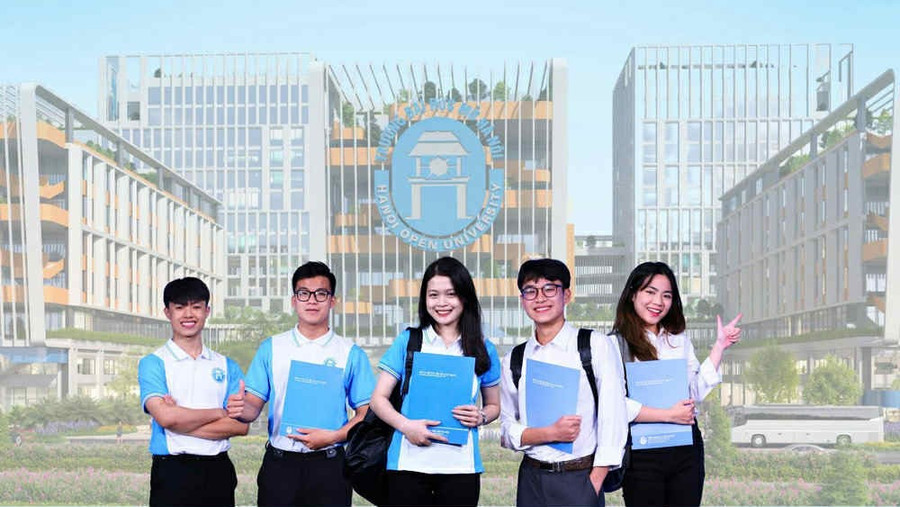
Bring the Resolution into life soon
In order for Resolution 71-NQ/TW to quickly come into effect, Lieutenant General Nguyen Xuan Yem proposed that the Government soon issue an Action Program; amend and supplement education laws; and incorporate the spirit of the Resolution into the 14th National Congress documents as well as congress documents at all levels. In addition, the content of the Resolution needs to be widely disseminated throughout the education and training sector.
Sharing the same view, Mr. Le Tuan Tu - former member of the 14th National Assembly emphasized that first, it is necessary to promote widespread propaganda to create social consensus. The resolution must be brought to every family, teacher, and student through newspapers, television, social networks, and educational platforms. Thereby, all levels and everyone understand and proactively implement it.
Second, prioritize investment in improving teachers' lives. To do so, the Ministry of Education and Training needs to coordinate the development of a mechanism to increase allowances and support teachers, especially in disadvantaged areas. Along with that, it is necessary to educate and promote talents - both inside and outside the system.
In addition, an interdisciplinary expert group should be established soon to develop a digital infrastructure system and learning data, ensuring connectivity between schools, teachers, students and management agencies.
Third, it is necessary to soon have a plan to merge or link schools with low quality education and training to focus resources on excellent centers, ensuring sufficient conditions to develop into places that provide scientific and technological solutions.
At the same time, strengthen international and business cooperation. On the other hand, expand cooperation with universities and international organizations to innovate training and research programs. Connecting schools and businesses as the core to promote practical education and innovation.
Fourth, it is necessary to detail the action program. Accordingly, localities and training institutions need to turn awareness into specific plans, publicize progress, monitor implementation effectiveness, link the Resolution to the school year plan and long-term development.
“It can be seen that Resolution 71-NQ/TW is not only an important document on education policy, but also a strategic orientation for fundamental change of the entire system. By concretizing it into an action program, increasing investment and enhancing responsibility from the central to local levels, Vietnam can turn education into a driving force for national development in the era of national development,” Mr. Le Tuan Tu emphasized.
To put the Resolution into practice soon, Mr. Dang Quoc An said that, first of all, the management mindset will change in a more open and flexible direction. From a centralized management model, based on "asking - giving", it will shift to an autonomous mechanism, associated with quality control, transparency and accountability. Thanks to that, educational institutions will have more flexibility in enrollment, program development, international cooperation and finance.
Second, the Resolution affirms the role of non-public education as an important component of the system, helping to unleash social resources, increase non-budgetary investment and reduce pressure on the public sector.
Third, education will focus on improving overall quality, shifting the focus from teaching literacy to developing competencies and qualities, linked to the labor market. STEM education, foreign languages, digital skills, AI, and innovation will be promoted, helping learners be ready to adapt in the digital age.
Fourth, the Resolution creates a turning point for the teaching staff, with a mechanism to attract and promote domestic and foreign talents, reform salaries, improve working conditions and have a clear career path.
Fifth, comprehensive digital transformation is considered a key task. Management, teaching, assessment and research will be closely linked with technology, towards smart education, lifelong learning, and international connection.
Mr. Ho Tuan Anh - Principal of Quynh Phuong Secondary School (Nghe An) said that in order for Resolution 71-NQ/TW to be effective in practice, it is necessary to make a breakthrough right from the management mindset. In fact, many viewpoints have been mentioned in previous documents, but implementation is still stuck because general education institutions lack initiative, leading to a passive and waiting situation.
According to Mr. Ho Tuan Anh, in the context of two-level local government, increasing autonomy and self-responsibility for educational institutions is a key factor, helping schools effectively implement the spirit of innovation set forth in the Resolution.
From a macro perspective, Prof. Dr. Nguyen Xuan Yem - Director of the Institute of Non-Traditional Security, School of Business and Administration (Vietnam National University, Hanoi) - emphasized: "The Government needs to immediately issue an Action Program to implement the Resolution, and at the same time amend and supplement relevant laws; include the content of the Resolution in the documents of the 14th National Congress and documents of Party congresses at all levels. At the same time, the entire education sector needs to quickly disseminate the spirit of the Resolution."
Source: https://giaoducthoidai.vn/nghi-quyet-71-nqtw-co-hoi-lon-cho-giao-duc-viet-nam-post746965.html






![[Photo] Many people directly experience beloved Uncle Ho and the General Secretaries](https://vphoto.vietnam.vn/thumb/1200x675/vietnam/resource/IMAGE/2025/9/6/2f4d9a1c1ef14be3933dbef3cd5403f6)

![[Photo] Hanoi students excitedly and joyfully open the new school year 2025-2026](https://vphoto.vietnam.vn/thumb/1200x675/vietnam/resource/IMAGE/2025/9/5/ecc91eddd50a467aa7670463f7b142f5)


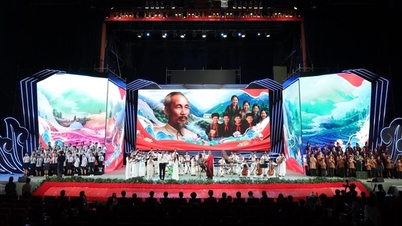





















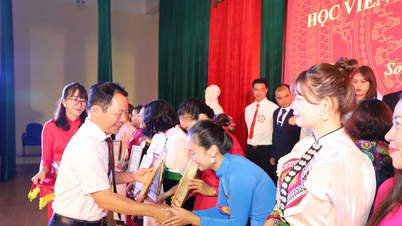

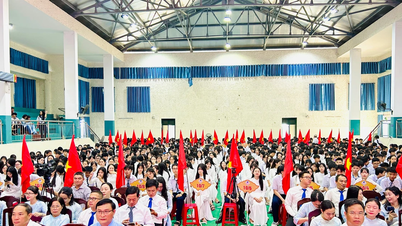
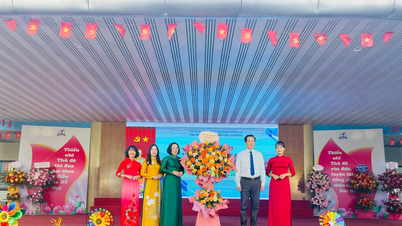
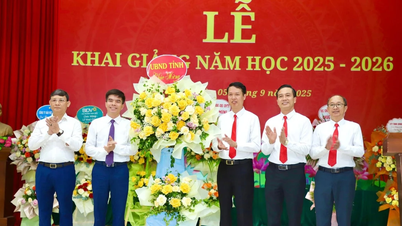

![[Photo] Opening ceremony of "Digital Citizenship - Digital School" and commitment to civilized behavior in cyberspace](https://vphoto.vietnam.vn/thumb/1200x675/vietnam/resource/IMAGE/2025/9/5/222ec3b8892f443c9b26637ef2dd2b09)
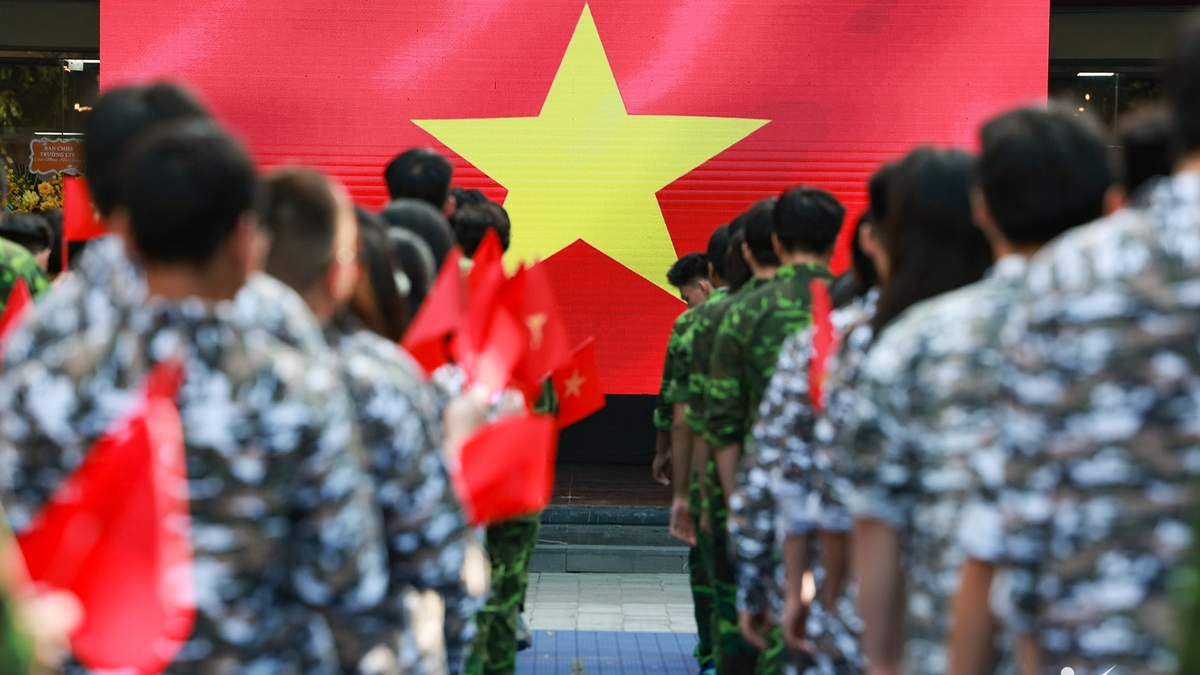




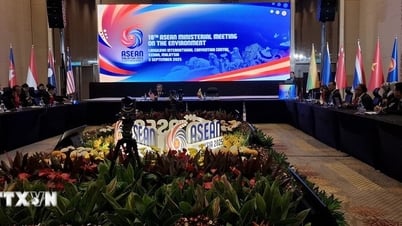









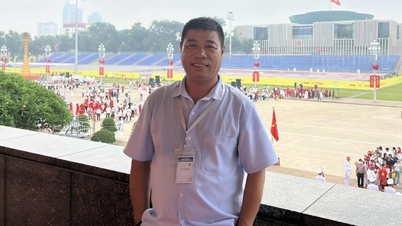






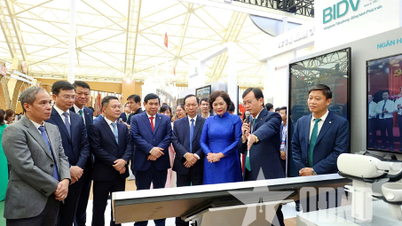




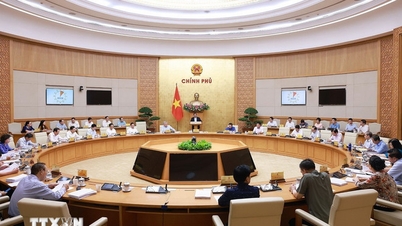
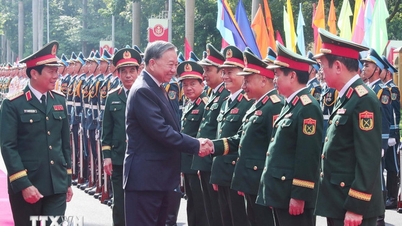










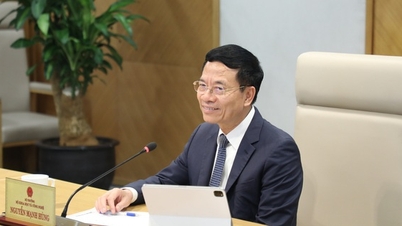

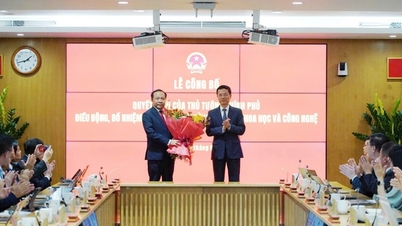















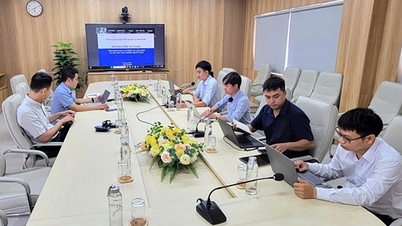




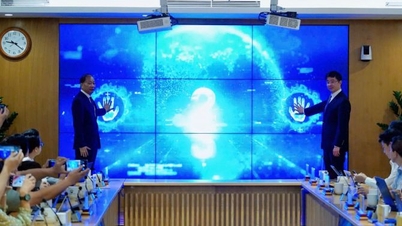





Comment (0)